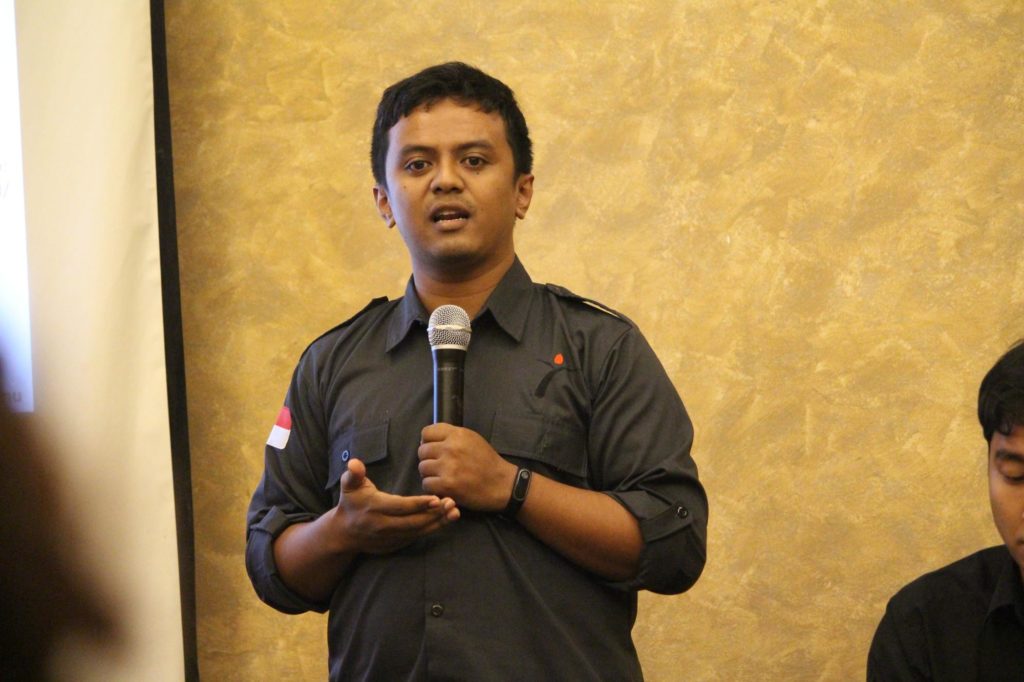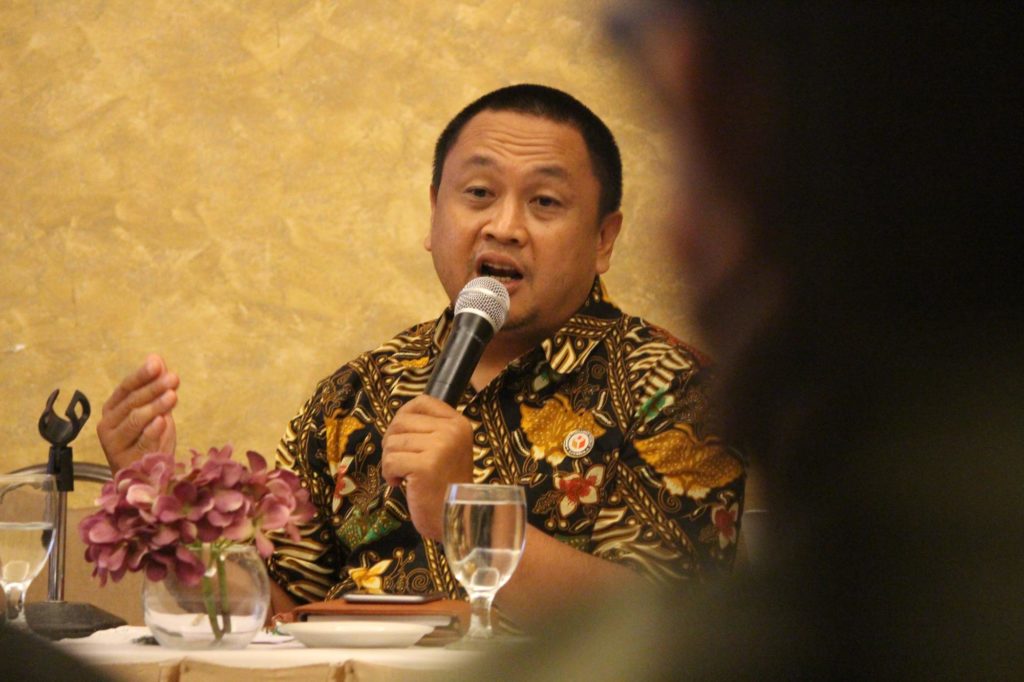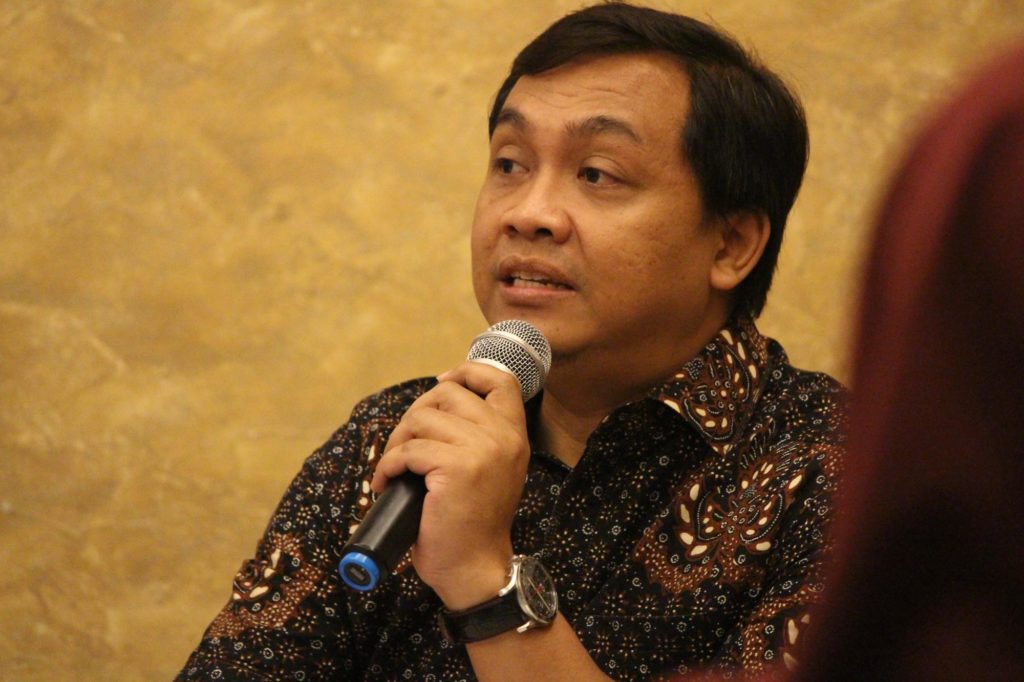Natural resources sector is prone to conflict of interest and monopolistic practices. Information disclosure regarding the beneficial ownership (BO) can be used as a tool to map out the corporate ownership while finding an indication of conflict of interest potential and monopoly practices in the sector. This topic was highlighted in a two-days training to understanding BO in the natural resources sector organized by Publish What You Pay (PWYP) Indonesia with the support of the Asia Foundation, last 21/2.

Syahrul Fitra, legal researcher of Auriga Foundation, shared the findings of his study on the BO mapping in the palm oil sector. The study which is carried out together with the Anti-Forest Mafia Coalition, assess the relationship between supplier companies of Asia Pulp paper (APP) that claimed as the independent partner, including two companies in Sumatera which experienced a massive fire in 2015, with APP management and or Sinar Mas Group, APP’s parent company. The study proves that 24 of 27 APP’s independent supplier companies are related to the Sinar Mas Group.
Syahrul also shared his experience regarding the challenges in conducting BO mapping in the company. “Companies often use ‘nominee’ as director or shareholders. Initially, we mapped out the shareholders and directors, then cross-checked the data with various information that we obtained from social media and data on the stock exchange. There are indications of concurrent positions and cross-stock ownership,” said Syahrul.
“We also suspect an indication of unfair business competition in the palm oil sector and we have already reported to the Commission for Business Competition (KPPU) for further action. Besides, such pattern of corporate ownership is prone to tax avoidance due to the ease of transfer pricing and misinvoicing trade practice,” explained Syahrul.
According to Syahrul, there are two main process in mapping out the BO. First, data collection. This stage is quite challenging for civil society due to lack of access on the beneficial ownership data. The situation would be different for authorized institution.
Second, profiling, by analyzing the individual data using various open sources. This process once succeeded to contribute to law enforcement on illegal logging cases in Papua. Profiling the data of actors and companies is able to reeval the relationship between companies, so the authorized institution is able to find out which companies should be responsible for illegal logging and forest damage.
This process also can be used in mapping the actors who contribute to the campaign in 2019 presidential election. However, it’s challenging to analyze further given the limited information provided in the published report of campaign contributors. “The name listed as contributors are the names of foundations and anonymous (“servant of Allah”). Meanwhile, individual names are needed in identifying beneficial ownership, ,” said Syahrul.

Sulistio, Legal Affairs Expert of the Election Supervisory Agency (Bawaslu), said that in the 2019 election, several strategies had been carried out to reduce the considerably high political costs. Among them is to fund the presidential campaign, such as media advertisement, through state budget.
“Contributors to campaign fund must include their identity, account number, or tax id number, along with the amount of donation. Campaign donations from corporations have a maximum limit, while donations from the candidates themselves are unlimited,” explained Sulistio.
Bawaslu presumes an unreported campaign fund contribution or a report on underpaid contribution. Sulistio also said that to bridge the lack of direct access to the banks, Bawaslu is currently collaborating with the Financial Transaction Reports and Analysis Center (PPATK).

Mohammad Reza, Expert Staff in Legal Affairs of the Commission for Business Competition (KPPU), explained the Law no 55/1999 concerning Monopoly and Unfair Business Competition Report. According to this law, if the public is aware of monopolistic practices, and unfair business competition, the public can report it to the KPPU.
“Public need to provide a clear information about the violations, including their identity when they report it the KPPU. KPPU will keep the confidentiality of their identity and they are not entitled any compensation,” said Reza.
The party who was harmed due to the violation of Law no 55/1999 can also report by giving clear information, and mention the amount of loss experienced. For the aggrieved party, they have the right to claim and receive compensation, but the identity is not kept confidential.
“Ccivil society and public in general can take advantage of this regulation if they find monopolistic and unfair business competition in the field,” concluded Reza.